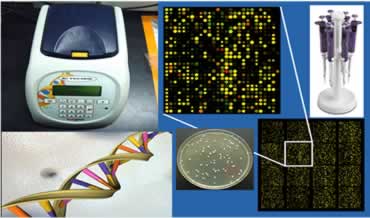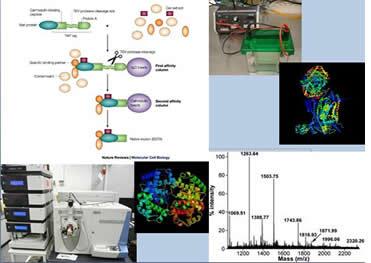SCIENTIFIC interests
Reticulate evolution in the adaptation to new environments
Ph.D. Project Interests (2007-2012)
Genome characterization of Hybrid yeasts: - S. cerevisiae x S. kudriavzevii
The yeast Saccharomyces cerevisiae is responsible of many biotechnological processes, such as the production of fermented foods (bread), beverages (wine, sake, beer), biomass, ethanol, proteins, vitamins, pigments, and flavoring compounds.
New yeasts are found in these environmental and their genomes are composed by two or three species of Saccharomyces genus. The aim of this study is to characterize the genomes of these new hybrid yeast strains and to analyze what physiological consequences could have the different gene composition.
Artificial hybrids between S. cerevisiae x S. kudriavzevii stabilized in different conditions could help us to understand the mechanisms involved in genome stabilization of the natural S. cerevisiae x S. kudriavzevii hybrids. In addition we could apply hybrid formation to obtain better strains for fermentative processes.
Proteomics in Hybrid yeasts: S. cerevisiae x S. kudriavzevii
Hybrid yeast between Saccharomyces genus are composed by two o three different genomes. We are interested to know if the proteins of the different species could work together (forming chimerical complexes) or not. To do that work we will work using the Tandem Affinity Purification to enrich our sample with one protein (tagged) involve in a complex of our interest and all the proteins that are interacting with the previous one. Using MS Spectrum we can detect the proteins involve in the complex formation.
Reconstruction evolutionary history of hybrids
Using different molecular methods as RFLPs, microarrays and gene sequencing we are interested to infer the evolutionary history of hybrids. The aim of this study is decipher which is the mechanism involved in hybrid formation and the geographical origin of them.









